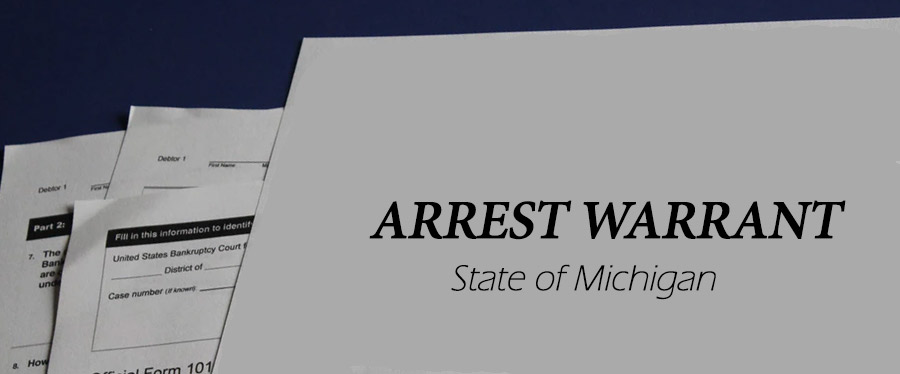You realize you have an old charge pending in court… now what?
If you have a warrant, you do not need to panic. A criminal charge is serious; however, there are many ways to avoid a conviction and jail time.

Defendants are wrongfully charged regularly. Every case has a defense and the right strategy can help you.
You may know that you had a charge filed against you in the past, or you may have just discovered that you were charged, perhaps years ago, and you never knew about it until now. What do you do now? What if there is an outstanding warrant for your arrest? Here is what you need to know about voluntarily surrendering on an old warrant for your arrest.
Sometimes, people charged with a crime decide not to face the case for whatever reasons, and they do not appear in court when ordered. And sometimes, people move, maybe out of state, and never know that a charge is pending against them. Whatever the case may be, neither a felony nor a misdemeanor charge will never go away by itself, no matter how old it is.
The problem with having an outstanding charge is that if you are ever stopped by the police for a traffic ticket, apply for certain jobs, or apply for certain licenses, you can be arrested at any time on the spot. You may even be arrested at the point of entry or departure at an airport or border crossing. If the charge is severe enough, even if you are in another state or country, the arresting state or country might extradite you to where the charge arose. The appropriate and intelligent way to deal with an old case is to hire an attorney and have the attorney make arrangements for you to surrender on the warrant and deal with it voluntarily. In some cases, the lawyer can get the warrant set aside and resolve a case without you having to appear personally.

Why do I need an attorney if I cooperate and turn myself in on an old warrant?
The fact is that if you face any criminal charge, you need an attorney. It would be best to have a skillful attorney for an old outstanding case because the judge will decide your bond when you get to court. The fact that you were an absconder for a long time will lead the judge to believe they should set a high bond to make sure you stay in jail, or you will show up when ordered. Even if you did not know the charge was out there, judges and prosecutors often assume you did know about it and treat you like a person who deliberately ignored court orders. A judge will almost certainly presume you intentionally failed to appear if you are picked up rather than turning yourself in.
An experienced, savvy attorney will know how to explain to the judge your circumstances so that they will impose a personal or low bond. A top-rated attorney knows what is essential to a judge as reasons for failure to appear and can organize evidence that may exist to explain your failure to appear. Throwing yourself at the mercy of the court is often a bad idea. Having a retained attorney will say volumes about your sincerity, willingness to appear in court, and commitment to follow court orders. Furthermore, suppose you get arrested on a warrant instead of voluntarily surrendering on a warrant. In that case, the judge might decide to require a large cash bond, and then you will not be available to cooperate with law enforcement.
What are the steps involved in surrendering myself on a warrant?
Once you have retained a reputable, top-rated attorney, the attorney will arrange everything. The attorney will first identify and contact the officer currently in charge of your case and inform the officer that you are represented and you intend to surrender. This action is critical because it will prevent you from being arrested anywhere, anytime. It will go a long way to get a recommendation from the officer of a personal or low bond, depending on the charge’s nature, of course. At the very least, the officer may leave the bond up to the judge’s discretion, which will greatly impress the judge. Why would the officer help in this way? Because you have made the officer’s life easier, and you have done the honorable thing by attempting to address the case. It may be possible to post a sum of money to get a warrant set aside in some cases. If a bond gets posted in cash, it is generally returned at the end of the case.
The next step will be a court date where the prosecutor decides if he still has enough evidence to proceed in the case. With old cases, evidence sometimes gets lost, and witnesses sometimes disappear or forget things. Lost evidence and missing witnesses can improve the defense lawyer’s ability to get charges dismissed.

A power law firm to lead you successfully through the process of voluntary surrender on a warrant.
The attorneys at LEWIS & DICKSTEIN, P.L.L.C. are widely known and respected by prosecutors and judges alike as being prepared and aggressive, yet honorable and reputable: precisely who you want by your side when you surrender.
Our dedicated and experienced defense attorneys have successfully represented thousands of clients on felony and misdemeanor charges in Oakland, Macomb, Wayne, Washtenaw, and Livingston Counties and throughout Michigan. We have a well-earned reputation for providing the highest quality defense and aggressive representation, while showing empathy and care for each client. We also have solid relationships and are well respected by officers, prosecutors, and judges throughout Michigan. Our approach to these matters helps us get the best possible results for our clients.
Call us today at (248) 263-6800 for a free consultation or complete a Request for Assistance Form. We will contact you promptly and find a way to help you.

